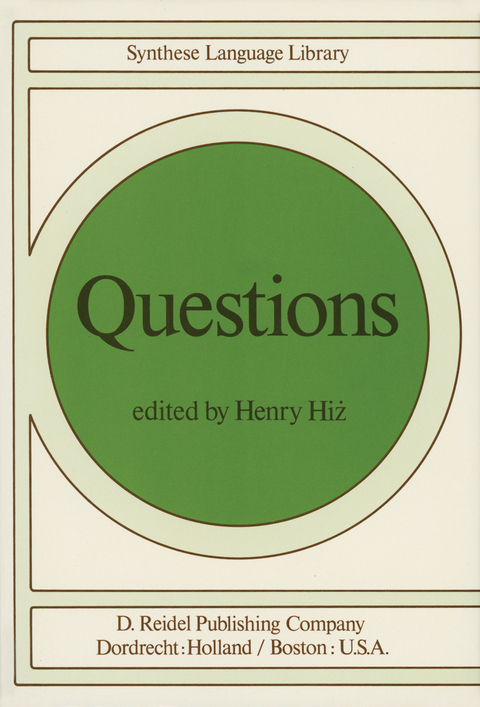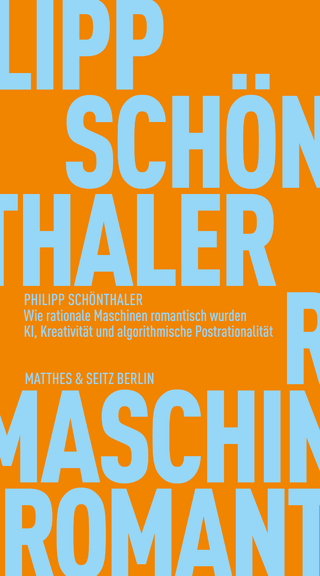
Questions
Seiten
1979
Kluwer Academic Publishers (Verlag)
978-90-277-1035-2 (ISBN)
Kluwer Academic Publishers (Verlag)
978-90-277-1035-2 (ISBN)
In actual context the anaphoric definite article will be resolved both for a question and for an indicative sentence. A philosopher may try to paraphrase a question as an indicative sentence, for instance as a statement of ignorance, or as a statement of the desire to know.
To the philosopher, the logician, and the linguist, questions have a special fascination. The two main views of language, that it describes the world, and that it expresses thought, are not directly applicable to questions. Ques tions are not assertions. A question may be apt, sharp, to the point, impor tant, or it may be inappropriate, ambiguous, awkward, irrelevant or irreverent. But it cannot be true or false. It does not have a truth value not just because an utterance like Was the letter long? does not indicate which letter is being talked about. The indicative The letter was not long has the same indeter minacy. In actual context the anaphoric definite article will be resolved both for a question and for an indicative sentence. Contextual resolutions are easily found for most cross-references. A question cannot be either true or it does not describe a state of affairs. Neither does it express false, because thought, because it is an expression of suspended thought, of lack of judge ment. To dress it in other philosophical styles, a question is not a judgment, it is not a proposition, it is not an assertion. A philosopher may try to paraphrase a question as an indicative sentence, for instance as a statement of ignorance, or as a statement of the desire to know. Hintikka, Wachowicz and Lang explore this territory. Or he may interpret it as a meta statement intimating the direction in which the flow of the discourse is going.
To the philosopher, the logician, and the linguist, questions have a special fascination. The two main views of language, that it describes the world, and that it expresses thought, are not directly applicable to questions. Ques tions are not assertions. A question may be apt, sharp, to the point, impor tant, or it may be inappropriate, ambiguous, awkward, irrelevant or irreverent. But it cannot be true or false. It does not have a truth value not just because an utterance like Was the letter long? does not indicate which letter is being talked about. The indicative The letter was not long has the same indeter minacy. In actual context the anaphoric definite article will be resolved both for a question and for an indicative sentence. Contextual resolutions are easily found for most cross-references. A question cannot be either true or it does not describe a state of affairs. Neither does it express false, because thought, because it is an expression of suspended thought, of lack of judge ment. To dress it in other philosophical styles, a question is not a judgment, it is not a proposition, it is not an assertion. A philosopher may try to paraphrase a question as an indicative sentence, for instance as a statement of ignorance, or as a statement of the desire to know. Hintikka, Wachowicz and Lang explore this territory. Or he may interpret it as a meta statement intimating the direction in which the flow of the discourse is going.
The Interrogative in a Syntactic Framework.- Generative-Transformational Studies in English Interrogatives.- Yes—No Questions Are Not Alternative Questions.- Asking More Than One Thing at a Time.- Q-Morpheme Hypothesis.- Syntax and Semantics of Questions.- Difficult Questions.- Questions and Categories.- Answers to Questions.- Questions as Epistemic Requests.- A Prolegomenon to an Interrogative Theory of Scientific Inquiry.
| Erscheint lt. Verlag | 30.11.1979 |
|---|---|
| Reihe/Serie | Studies in Linguistics and Philosophy ; 1 |
| Zusatzinfo | 383 p. |
| Verlagsort | Dordrecht |
| Sprache | englisch |
| Maße | 155 x 235 mm |
| Themenwelt | Geisteswissenschaften ► Philosophie ► Sprachphilosophie |
| Geisteswissenschaften ► Sprach- / Literaturwissenschaft ► Sprachwissenschaft | |
| Sozialwissenschaften | |
| ISBN-10 | 90-277-1035-X / 902771035X |
| ISBN-13 | 978-90-277-1035-2 / 9789027710352 |
| Zustand | Neuware |
| Haben Sie eine Frage zum Produkt? |
Mehr entdecken
aus dem Bereich
aus dem Bereich
Macht und Legitimität politischer Sprache im Prozess der europäischen …
Buch | Softcover (2023)
Nomos (Verlag)
CHF 103,60
KI, Kreativität und algorithmische Postrationalität
Buch | Softcover (2024)
Matthes & Seitz Berlin (Verlag)
CHF 23,90
Wie die Menschheit zu ihrer größten Erfindung kam
Buch | Softcover (2022)
C.H.Beck (Verlag)
CHF 25,20


